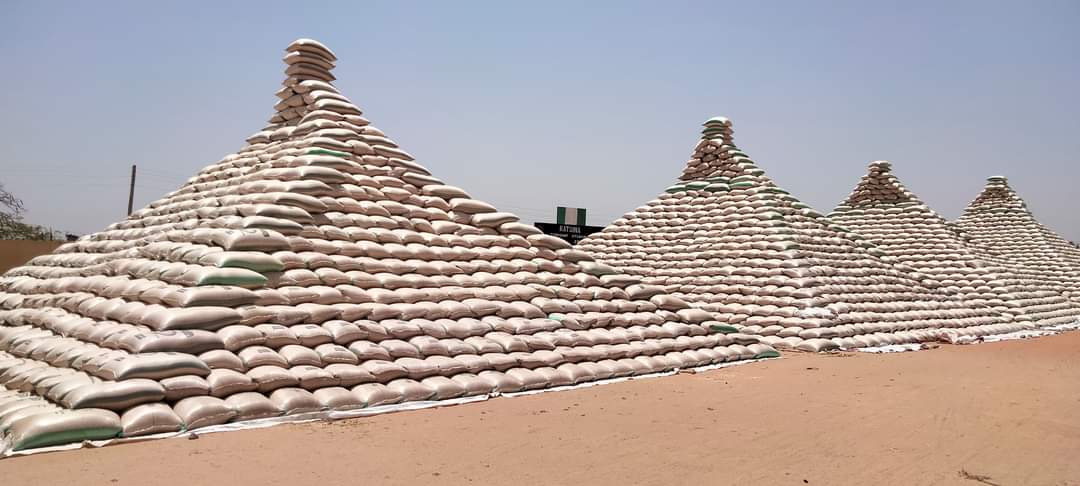As the world grapples with the impact of Russia’s invasion of Ukraine, which threatens global food supply, the Central Bank of Nigeria or CBN said it would boost food production early in April through its Anchor Borrowers Programme or ABP.
The ABP is a programme that gives loans to smallholder farmers to boost agricultural production, create jobs, and reduce Nigeria’s food imports.
Godwin Emefiele, the CBN governor, said this today during the unveiling of the second maize pyramids and the official kick-off of 2022 maize wet season farming in Kaduna State.
The CBN Governor, Godwin Emefiele, represented by the bank’s director of Development Finance Department, Philip Yila Yusuf, said that the bank is committed to financing over 600,000 hectares of maize farmlands.
He said that the bank’s strategy is hinged on improving productivity by providing more funding for the anchors (farmers) to use high-quality inputs and good agronomic practices to boost output amid global shortfalls.
“Bringing recent happenings globally into perspective, two of the top ten exporters of maize (Argentina and Brazil) experienced droughts in 2021, while another two (Ukraine and Russia) are at war. This will certainly impact maize supply globally and drive prices northwards,” he said.
“Consequently, we have planned a more robust and timely wet season to commence in April 2022 for maize and other key commodities like rice, wheat, cassava, sorghum and soybeans to mitigate the impending food crisis occasioned by the crisis in Russia and Ukraine.”
Emefiele said that the produce of the first maize pyramids launched in Katsina with a total of 300MT (displayed in 12 pyramids) was strategically released to the market through allocation to major feed mills and large-scale poultry farms.
“This strategic allocation assisted in moderating prices and ensuring steady supply to the major players in the market. The cost savings to these economic agents were enormous, and it had a multiplier effect of the entire value chain,” he explained,
Speaking further on how the programme has impacted maize output, Emefiele said: “Prior to the CBN’s initiation of the maize revolution under our Anchor Borrower Program, growth of maize production in Nigeria had been largely due to the increase in hectares of cultivated land and not the yields per hectare. The yield prior to 2016/2017 in Nigeria was as low as 1.8MT/Ha, considered as the lowest among the top 10 maize producers in Africa, behind countries such as Egypt and South Africa, where the yields are 7.7 MT/Ha and 5.3MT/Ha, respectively.”
According to him, Nigeria’s maize production now stands at 12.2 million metric tonnes as a result of the programme, up from 10.5 million in 2015 when the ABP commenced.
He said as the farmers paid back their loans, the bank established a Strategic Maize Reserve in 2020 to moderate the price of maize through strategic supply to millers and poultry farmers.
The Central Bank of Nigeria (CBN) aims to bolster food production to counteract global food supply shocks due to the Russia-Ukraine conflict. Through its Anchor Borrowers Programme (ABP), CBN plans to support smallholder farmers with loans to increase agricultural output, reduce food imports, and create jobs. Governor Godwin Emefiele announced the bank's intention to finance over 600,000 hectares of maize farmland utilizing high-quality inputs and better agronomic practices to mitigate global shortfalls.
CBN also plans to expand support to other key crops such as rice, wheat, cassava, sorghum, and soybeans. Previous efforts under the program have increased maize production from 10.5 million metric tonnes in 2015 to 12.2 million metric tonnes. Additionally, the bank established a Strategic Maize Reserve in 2020 to stabilize prices and provide steady supply to millers and poultry farmers, further enhancing the value chain.






